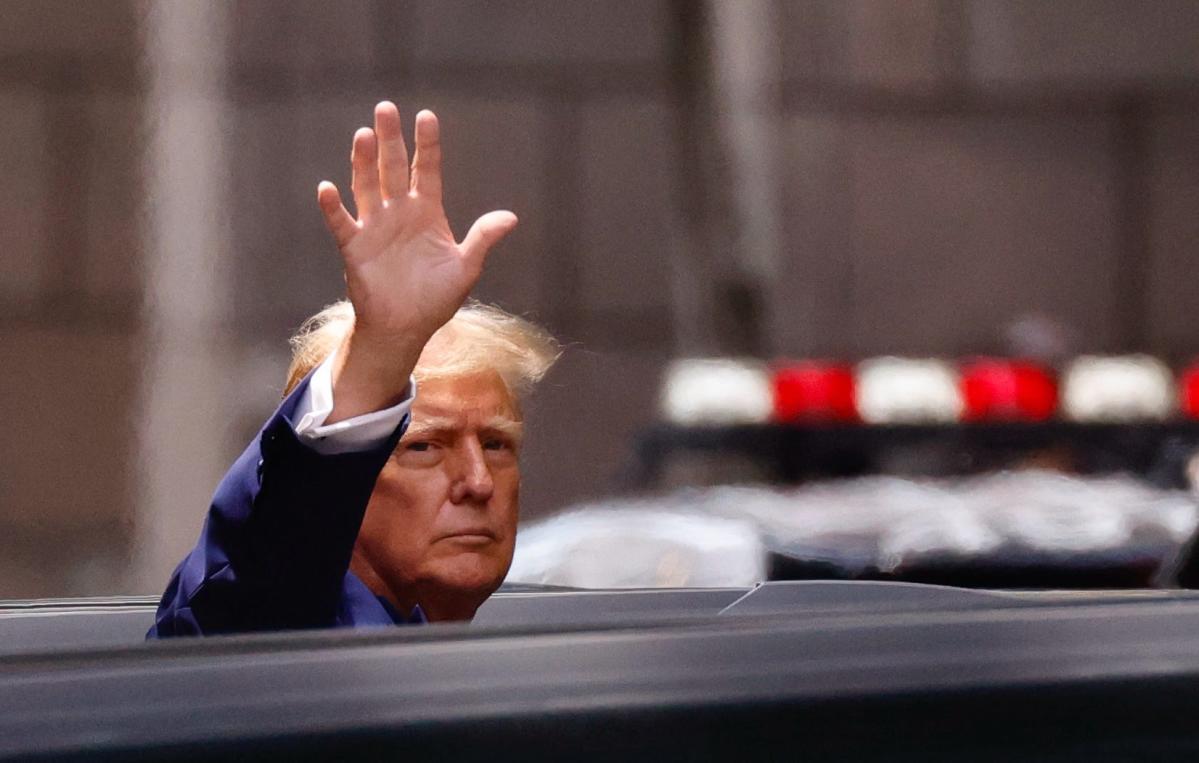CLEVELAND — In less than 175 days, voters in the United States will go to the polls to vote in one of the most consequential elections in the history of the world. For many, this is the most dreaded election in the United States since the 1860 presidential election. Even if that is hyperbole, there is little doubt that the Nov. 5, 2024, presidential election will play a massive role in determining the future of our country and the world.
There is little doubt that the United States’ two main political parties have backed themselves into a corner ahead of November’s presidential election. For the Democrats, there is a palpable fear among many voters that President Joe Biden is simply too old and frail to serve a second term as president. However, without the president, there are fears that Democrats would be forced to nominate a candidate that is too far to the political left to be elected president.
Republicans, too, have painted themselves into a corner. Polls have shown that, if they would nominate a centrist candidate, Republicans would have a very strong chance of regaining the presidency. However, their presumptive candidate, former President Donald Trump, is a highly flawed candidate with a less-than-stellar record as president who is also entering a stage where he may be too old to effectively perform the duties of a U.S. president for the next four years.
As we look ahead to the presidential election, there are three types of variables that will determine the outcome of this election. There are the traditional variables that determine the outcome of every presidential election in the United States. There are also the variables that have emerged in the 21st century. Finally, there are the variables that center around the quirks of the electoral system in the United States.
Among the traditional variables, the economy remains the leading issue in the upcoming presidential election. This year, the issue of inflation is likely to be one of, if not the, leading factor in voters’ minds, as high inflation has proven to be stickier than expected. On the other hand, the U.S. economy has proven to be surprisingly strong in recent years, particularly when compared to its international peers. Another traditional issue that will play a major role in this year’s election is immigration, particularly if there is another surge in migrants arriving at the U.S. southern border in the coming months. Finally, national security, while rarely a dominant issue, will be in focus due to the wars in Ukraine and Gaza, as well as the rising tensions between the United States and China.
On top of these traditional issues, there are many new issues that have arisen in recent years that will impact this year’s presidential election. One issue specific to this year’s presidential election is the flaws of both main candidates in this election. A remarkably large share of the electorate is dissatisfied with this year’s candidates. Elsewhere, modern-day social issues are likely to influence many voters in this election. Climate change and environmental issues are also more in focus today than in the past. The rise of artificial intelligence and the influence of social media will result in technology playing an ever-larger role in this election (and future elections). Likewise, the threat of foreign interference will be a major factor in this election, even more so than in the last two presidential elections. All of these modern factors have the potential to sway what is likely to be a close-run election.
Michael Weidokal is a global economist, futurist and the founder of International Strategic Analysis (ISA).
Finally, the quirks of our country’s electoral system will once again play a massive role in determining the outcome of a presidential election in the United States. In fact, it appears that only seven states will decide this election. At the moment, Mr. Trump holds a small, but steady, lead in the four southern and western swing states (Arizona, Georgia, Nevada and North Carolina), while the race is very close in the three northern swing states (Michigan, Pennsylvania and Wisconsin). Some former swing states, such as Ohio and Florida, are no longer swing states and are unlikely to be competitive in this year’s election.
Clearly, there is a great deal of uncertainty ahead of the 2024 presidential election. The potential for defenestration, incapacitation or incarceration or one or both of the main two presidential candidates is shockingly high at this stage of the campaign. In fact, there are many variables or potential events that could yet swing this election. These include the economy, immigration, social issues and geopolitics. Worse, this election could stoke a level of unrest that we have not seen in this country in decades, if not longer. One would hope that our political leaders would work to avoid this possibility, but we have seen little sign of that happening so far.
Michael Weidokal is the founder and president of International Strategic Analysis, a leading global economic and political research firm, and ISA Advisory, an international consulting firm. An executive-in-residence and lecturer at Baldwin Wallace University, his upcoming book, “The Coming Decline: A World Without Economic Growth,” will be published later this month.”
Have something to say about this topic?
* Send a letter to the editor, which will be considered for print publication.
* Email general questions about our editorial board or comments or corrections on this opinion column to Elizabeth Sullivan, director of opinion, at [email protected].













